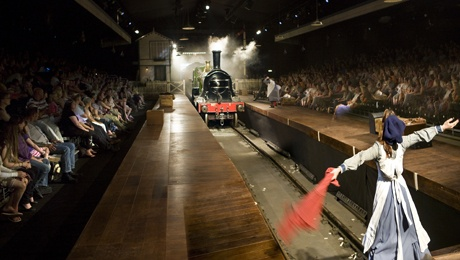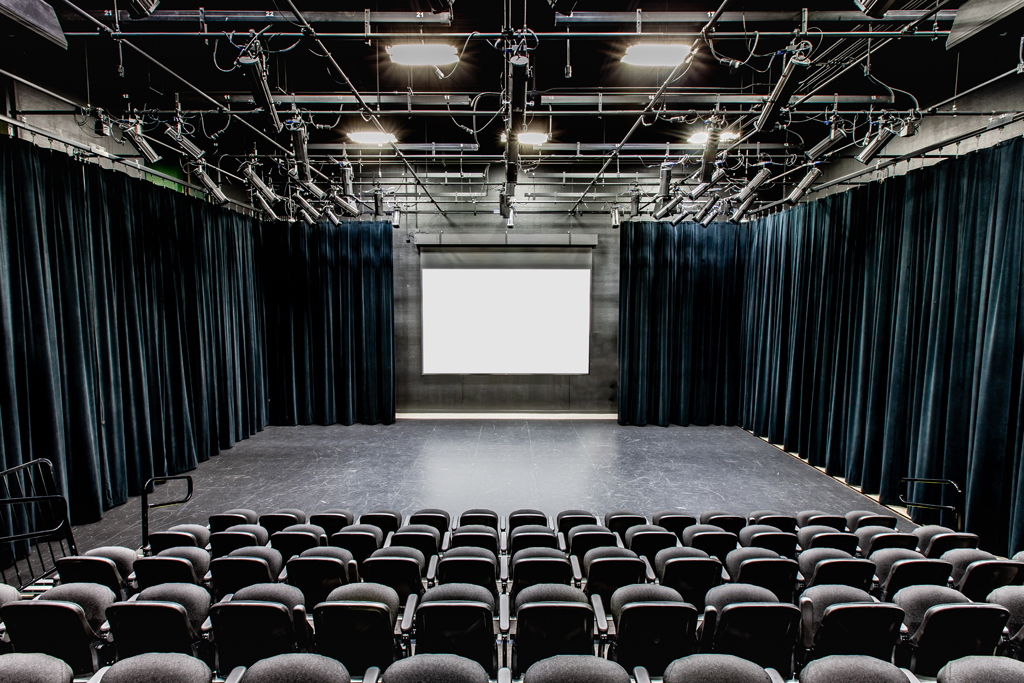Mid-term Study prt 1
1/91
Earn XP
Name | Mastery | Learn | Test | Matching | Spaced | Call with Kai |
|---|
No analytics yet
Send a link to your students to track their progress
92 Terms
Dithyrambs
Hymns to and about the poet Dionysus, the performance of which led to the creation of Greek Drama
Greek Tragedy
- Great people brought low by making the wrong choices, usually set in mythic past, and always deals with serious topics, often ends in death; performed in trilogies
Satyr Play
Followed tragic trilogy, the chorus was always dressed as satyrs; very lewd humor, often adapted well known myths(greek)
Greek Comedy
Common people trying to rise up; set in modern day; mixture of bawdy humour and sophisticated political and social
Greek Chorus
Not individual characters, but have a collective voice as a group of characters in all Greek Drama, often providing vital exposition and commentary on the events of the play
Deus Ex Machina
‘god in the machine’; ancient theatrical technology that utilized a crane to lower an actor dressed as a god down to the stage in a basket so that the deity could resolve complicated plot situations
Dionysus
Greek God of Wine, Fertility, & Theatre
Theatre of Dionysus
First permanent theatre ever built for the Festival Of Dionysus in which Athens became the city ‘Dionysia’, featured a play competition
Thespis
The ‘Inventor of Tragedy’, the First to use mask first real greek actor
Aeschylus
greek Tragic Playwright, wrote the Oresteia (only tragic trilogy where all three plays survive)
Sophocles
greek Tragic Playwright, wrote Oedipus Rex
Explain Oedipus Rex
A man unwittingly fulfills a prophecy stating he will kill his father and marry his mother
Euripides
Tragic greek Playwright, wrote The Bacchae
Explain Bacchae
a play about the Greek god Dionysus and his journey for retribution.
Aristophanes
greek Comic Playwright (Old Comedy), wrote Lysistrata
Aristotle
Greek Philosopher, student of Plato, tutor of Alexnder the Great; wrote The Poetics, the first aesthetic writing on theatre, including the Six Elements of Tragedy
Hamartia
refers to the failure of the hero, meaning ‘to miss the mark’; though sometimes thought of as a ‘flaw’, the Greek view seems to be more about whiffing
Catharsis
refers to the release of real emotions in reaction to great theatre
What are Aristotle’s Elements of Tragedy?
Plot, Character, Thought, Diction, Song, and Spectactle
Terence
roman playwright born in Northern Africa, may have been the first playwright of colour, and nearly as influential as Plautus
What types of masks were used in Roman theater, and for who?
used masks until the 1st century AD, white for female characters, brown for male
Artifice
meaning/ or relating to human construction, skill, or cunning(Ingenuity)
An Artifact
is anything created by human artifice.
Aesthetic value
generally used to refer to how people relate/react to art and beauty
Axiology
is the study of value and aesthetics can be understood to be the study of the value of art and beauty
Formalist
approach examines a work of art independently for its craftsmanship and beauty, its inherent aesthetic value
Contextualists
look at the ‘context’, the history, geography, and place in broader sociological and artistic movements to determine value
Theater Requires 3 Things Which are?
Performer
Audience
Live(Shared Space)
What Stage is this?
Proscenium Stage: Most popular stage because of broadway. The audience is entirely opposite of the stage.
What Stage is This?
Thrust: Surrounded by the audience on three sides. Uses an intimate connection due to the proximity.
What Stage is this?
Arena: A stage that is surrounded by all sides, also called ‘circle’ or ‘in-the-round’ Stage directions are described by cardinal signs or clock positions

What Stage is this?
Traverse: Also called ‘alley’. Stage is between the audience on two sides. Set pieces are placed at the ends. Less common than other stages

What stage is this?
Black Box: Not a particular shape but malleable with minimal set pieces. Experimental, educational,
What is Drama?
derives from conflict, though not necessarily interpersonal characters in works of fiction have a Task, Objective, Goal, Motivation, or intention
Upstage vs Downstage
Further away from audience is “upstage” Closer to audience is “downstage”
Farce
is a type of comedic work of drama that involves buffoonery, slapstick (physical comedy), broad characterization, and ridiculous and improbable plots
Atellan Farces
exceptionally, vulgar(improvised)
Stock Characters
a stereotype people could recognize, which carried from Greece, Rome, and Renaccicne
Chiton
a Greek tunic
Himation –
cloak worn over the chiton
Fabric Color & Symbolism
Purple – Wealth
Red – Poverty
Striped Togas – Boys
Yellow robes – Women
short cloak – Soldiers
Yellow tassel - Gods
Lucius Livius Andronicus
The first ‘Roman’ playwright, Livius Andronicus was a Greek Slave who translated Greek work into Latin(He also translated Homer’s Illiad)
Plautus
one of the famous roman playwrites, wrote comedies that influenced menander
Roman Drama
was sometimes linked to religious festivals, but there was less sense of community and civic pride than Greece
Actors in Rome
were entirely professional, and theatre was just one of many competing forms of entertainment(were not considered entirely respectable)
Roman plays
were competing with nude mimes, live staged sea battles, acrobats, and prisoners being fed to wild animals
Theatre of Pompey
first roman theater ever built
Cicero
The great Roman orator, lawyer, and statesman a fan of theater (Died b/c Marc Antony had him executed)
Roscius
A (Roman) comedic actor, was so celebrated for his skills that his name became synonymous with brilliant acting of any kind
Ira Aldridge
The great American Shakespearean, Roscius’(meaning great actor) first man knighted for his skills as an actor(First African American Actor)
Clodius Aesopus
The greatest roman tragic actor in the time of Cicero, during the transitional period from Roman Republic to Roman Empire
Seneca
greatest roman tragic playwright
Theodora
First woman actor of rome, climbed up the ranks became empress; Justinian’s reign was notable for the expansion of women’s rights and protections under the law
What did Christianity in Medieval Europe focus on?
upon the next life and theatre was seen as a sinful waste of time
Actors in Christian Europe
could not be baptized, marriage to an actor ended in excommunication
Explain the Christain Church in Europe
spread across the world through Rome had outlasted the Roman Empire people were no longer united in Europe by a single political power, they remained tethered to one another through their shared faith
Explain Catholic Church in Europe
at the beginning of the Medieval period, the only church, but schisms fractured Christianity throughout the medieval period and through the Renaissance
What happened to theater during this period?(Medieval Europe)
Theatre all but disappeared from the European world
Hrotsvitha
The First Woman Playwright, loved comedy but was troubled by the lewdness of the Roman playwrights Inspired by Terence, whose plays were more polite decided to write her own plays
What is a Canoness?
is a nun of high rank, afforded her the opportunity to have servants and receive a great education
What is a Closet Drama
written to be read rather than performed, though it was probably read aloud as a performance in the medieval period
Liturgical Drama
recreating favourite stories from the Old Testament with an increased focus on costumes and props(Church members took on the role of angels and the three Marys discovering the resurrection)
Mansions
for small stages to be setup outside
Explain Cycle Plays
arranged in small stages to be setup outside, called ‘mansions’; followed the story of the Old Testament up to the Resurrection, some going to the Last Judgement
Explain Mystery Plays
Guilds, like carpenters, tailors, and blacksmiths, referred to their trades; Actors were amateurs, people saw more than forty plays over several days had pageant/float stages
What is a Passion Play?
If the subject was the Resurrection, still performed by Catholic Churches
What is a Miracle Play?
If the subject was a saint
What is a Secular Play?
plays about folklore emerged in the late 13th century, including the first dramatization of Robin Hood
Morality Plays
were themed around death and preparing for the afterlife “Everyman”, written in the late 1400s in Middle English, is an example
What is Kagura?
God music performed by preistesses
What is Sarugaku?
Monkey Music was a popular form of dance entertainment which included animal acts, nudity, and dance theatre
What is the evolved form of Sarugaku
Sarugaku noh which was revised by Buddhist Monks into a cleaner version which was also used as an educational tool.
What myth started theatrical performance in Japan?
invented by the deity Ame-no-Uzume, goddess of merriment and the dawn, who put on a striptease dance to lure Amaterasu, the sun goddess, out of a cave
Who was Zeami Motokiyo?
considered the greatest playwright and theorist of Noh Drama, Son of sarugaku noh actor Kan'ami Kiyotsugu, established the Kanze School of Noh Drama, developing the form as it exists today(Retired as a monk)
Who Was Ashikaga Yoshimitsu
Through his patronage, Noh became the preferred theatrical entertainment of the samurai aristocracy; besotted with Zeami, and impressed with his brilliance as a performer
Kami Mono
Story of a sacred Shinto shrine
Shura Mono
Warriors
Katsura Mono
-‘Wig Plays’, feature women played by men
Gendai Mono
naturalistic stories
Kyojo Mono
sad ‘wig plays’ about a woman losing a child or lover and going mad
Kichiku Mono
Demon Plays
Kyogen
Short comic scenes played between Noh plays or sometimes with parodies of Noh (similar to Satyr plays) Or Scenes of Everyday life (like Roman comedies)But Kyogen was NEVER vulgar
The Shite
is the main character, the only to wear a mask in noh
The Tsure
the Shite’s companion
Waki,
, the witness for the antagonist
What is the Oldest Butai still standing
Itsukushima Shrine, Miyashima
Who Was Kiyokazu Kanze?
The 26th Grandmaster of the school of Noh He became Director of the Kanze School at age 31
What are the common types of Masks in Noh?
Old Men
Women
Gods
Demons & Spirits
Who wore Kyogen Masks?
only actors playing animals or gods Less distinct designs of the masks
What is a Karaori?
The ‘exquisite woman’s kimono’ Word translates as “Chinese style fabric” modelled after the Chinese Shokko brocade.
Greatest Playwright of Kabuki?
Chikamatsu,wrote Kabuki and puppet theater Bunraku
Izumi no Okuni
the founder of kabuki performed it in a dry river bed, onnakabuki when only women did it. Kabuki had crazy makeup